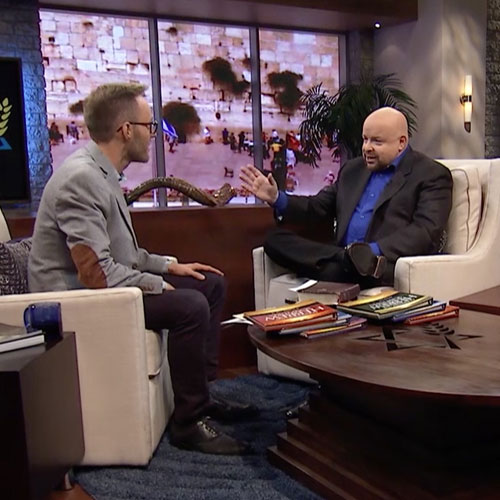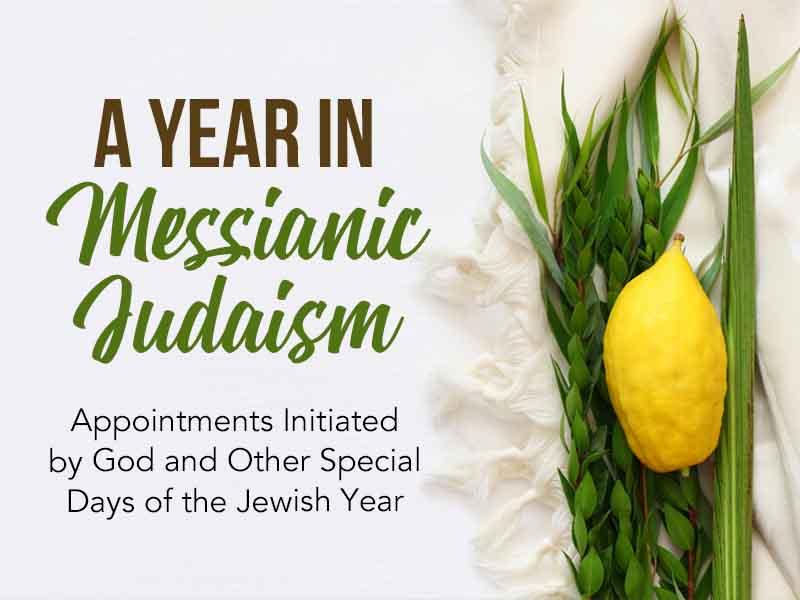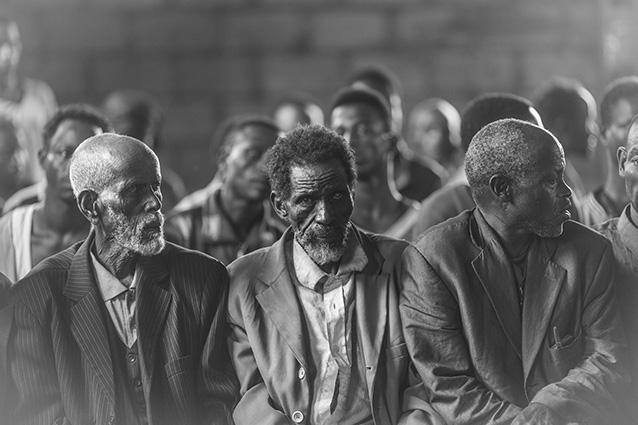Ezra Benjamin | Confessing the Hebrew Scriptures – The Lord Almighty



The equally confusing answer is: Yes. Judah is all three. Judah, son of Jacob, founded the tribe of Judah, which in turn become the name of the Southern Kingdom of Judah, comprised of two family lines or the Tribes of Judah.
Let’s back up.
Jacob –son of Isaac and grandson of Abraham – fathered 12 sons, including Judah. God later changed Jacob’s name to Israel (Genesis 32:25‒32), and the descendants of his sons became known as the 12 Tribes of Israel.
The tribes lived as a united nation through the reign of King David’s son, Solomon. After Solomon died, the Israelites divided into two separate kingdoms, each with its own king.
The Southern Kingdom was called Judah and included the tribes of Judah and Benjamin. The Northern Kingdom was called Israel and comprised the tribes of Reuben, Simeon, Manasseh, Issachar, Zebulun, Ephraim, Dan, Asher, Naphtali and Gad.
In 722 B.C.E., Assyria conquered the Northern Kingdom of Israel, either taking captive or driving out members of the 10 Tribes. Although there are other terms used, this is commonly referred to as the Assyrian exile. Some accounts say that the 10 Tribes, at this time, were “lost to history.” In reality, they were scattered throughout the known world, including the significant number who settled in the Northern Kingdom.
Then, in approximately 586 B.C.E, the Southern Kingdom fell to Babylon. The Temple was destroyed, and the Tribes of Judah were removed from the Land, largely to Babylon. Around 445 B.C.E., Nehemiah led a remnant of the Jewish people back to Jerusalem and rebuilt its walls and gates.
Then, more than 500 years later after the time of Yeshua, in 70 C.E., the Romans destroyed the Second Temple and, again, Jewish people scattered into the world at large. While all historical occurrences that caused dispersals of the chosen people – even to modern times – are referred to as general diaspora, this specific event is called “the Diaspora.”
Before the Assyrian invasion of Israel, some from the Northern Tribes had migrated to the Southern Kingdom and joined the Tribes of Judah. This remnant was eventually taken captive or scattered along with the Southern Tribes.
God promised the Jewish people that He would make the two nations one again and bring them back into the Land of Israel. In 1948, He fulfilled this prophecy when Israel was reborn as a single nation (Ezekiel 37:15‒17, 21‒22). Many Jewish people, however, remain scattered throughout the world.
Judah was Jacob’s fourth son, born to Leah. Benjamin was the youngest, and his mother, Rachel, died moments after he was born.
When the families of Israel suffered a great famine, Judah promised his father that he would protect Benjamin on the journey to Egypt for grain. When Joseph threatened to keep Benjamin as a slave for stealing the planted silver cup, Judah pleaded to be held instead so the youngest brother could return to their father.
After Joshua led the Israelites in conquering the Promised Land, the Tribes of Judah and Benjamin settled near each other. Benjamin’s descendants took up residence in a small area northwest of the Dead Sea. Judah’s large territory was south of Benjamin’s, west of the Dead Sea, and included Jerusalem.
Benjamin’s was the smaller of the two Tribes of Judah and the least of the 12 Tribes as well. When Jacob neared his death, he pronounced blessings on each of his sons. He declared Benjamin a “ravening wolf devouring spoils and dividing plunder” – a fighter and warrior (Genesis 49:27).
Ehud, a Benjamite in the period of the judges, was a mighty warrior who freed Israel from the Moabites when he rallied the people to take control of the Jordan River’s crossings and strike down the men of Moab. With this, Ehud won 80 years of peace for Israel (Judges 3:12‒20).
Saul, Israel’s first king, was from the Tribe of Benjamin (1 Samuel 9:15‒27), as were Mordecai and Esther (Esther 2:5‒7) and the apostle Paul (Romans 11:1).
Judah was considered the foremost of the 12 Tribes of Israel. Jacob’s blessing on Judah identified his family as the royal line that would rule Israel eternally.
“The scepter will not pass from Judah, nor the ruler’s staff from between his feet, until he to whom it belongs will come. To him will be the obedience of the peoples” (Genesis 49:10).
This Messianic prophecy declares that the Messiah would come from Judah’s line. Yeshua (Jesus), who descended from the tribe of kings through David and Solomon, fulfilled this prophecy, being the King of Kings who will reign forever.
Jacob’s blessing also referred to Judah as a lion’s cub (Genesis 49:9). This is the origin of one of Yeshua’s names; in Revelation 5:5, He is called the Lion of Judah.
Ancient conquests by Assyria, Babylon and Rome dispersed Jewish people from their Land, and intense persecution in the following centuries scattered the Jewish people further. Today, members of the Tribes of Judah and Israel reside all around the world. Jewish populations live on every major continent and have been found in Ethiopia, Zimbabwe, South Africa, Mexico, South America, China, India, Somaliland, Afghanistan, Nigeria and beyond.

Unlock the “unsolvable” mystery and discover how the Lost Tribes and You are vessels for fulfilling biblical prophecy.

One aspect of any kind of new year is an opportunity to reflect on the previous 12 months and the hopes for the year ahead. But when it comes to Rosh Hashanah (Roshe Hah-SHAH-nah), the Jewish New Year, this is the very meaning and purpose of the holiday.
In Hebrew, Rosh Hashanah means “head of the year.” Jewish tradition teaches that God made the earth on the same date as the biblical Feast of Trumpets, or Yom Teruah (YOM teh-ROO-ah). For this reason, Rosh Hashanah and the Feast of Trumpets are observed together.
Scripture reveals little about Yom Teruah and its meaning. The books of Leviticus and Numbers provide brief instructions requiring a Sabbath rest, a holy assembly, various offerings and blowing the shofar (SHO-far). Jewish people celebrate Creation and the start of a new year in synagogue services that include special liturgy, prayers and blessings along with 100 blasts of the shofar.
Rosh Hashanah occurs on the first day of the Hebrew month of Tishrei (TISH-ree). As Jewish days begin and end at sunset, this year the holiday starts at sundown on September 9 and ends at sunset on September 10. The Jewish calendar counts from Creation, and this Rosh Hashanah, we will enter the year 5779.
On Rosh Hashanah, families gather for special meals and sweet foods to symbolize the hope of a sweet new year. Apples dipped in honey are a traditional treat.
Shanah Tovah Umetukah
(SHAH-nuh TOH-vuh Oo-may-TOUK-ah)
A good and sweet year!
L’shana Tovah!
(Li-SHAH-nuh TOH-vuh)
For a good year!
This small shofar is made of a ram’s horn and measures 8” to 12”. Colors, textures, and finish vary in these natural animal horns but all are beautiful and have been tested to be functional before shipping. Includes a beautifully crafted wooden stand to display your shofar.
The Jewish New Year includes a spiritual component not typically associated with New Year holidays of other cultures. Rosh Hashanah ushers in the High Holy Days of the Jewish calendar. The Rabbis teach that at Rosh Hashanah, God pronounces a judgment for the coming year upon each of His people. On the Day of Atonement, called Yom Kippur (YOHM Kip-POUR), He seals that judgment. The 10 days between these holy days are known as the Days of Awe. According to Jewish tradition, during this time, God may yet alter what was to be an unfavorable decree and grant them a good new year. Therefore, Rosh Hashanah begins a time of intense reflection on one’s life and repentance before God in preparation for Yom Kippur.
The High Holy Days are vitally important in the annual cycle of Jewish life, and this contemplation actually starts during the preceding month of Elul. On the first of Elul, Jewish people begin a period of examining themselves before God, and seeking His forgiveness and favor for the following year. Reflection increases as the month advances toward the new year, with the most dedicated reflection taking place during the 10 Days of Awe.
Messianic Jews recognize that God has sealed Believers in Yeshua with the Ruach HaKodesh (ROO-akh Ha-ko-DESH), the Holy Spirit, guaranteeing His favor for eternity (Ephesians 1:13).
They also understand that there is a prophetic element found in Rosh Hashanah and Yom Teruah. The Hebrew word for the Jewish Feasts outlined in Leviticus 23 is moadim (mo-eh-DEEM), which means “appointed times.” God declared these moadim His appointed times and commanded them as essential observances in Jewish life. Each also serves at some level as a picture of the coming Messiah, Yeshua (Jesus).
We see in the Spring Feasts of Passover, First Fruits and the Feast of Weeks prophetic forecasts of occasions that took place with Yeshua’s (Jesus’) first coming: His death, resurrection and the giving of the Holy Spirit.
The Fall Feasts contain foreshadows of future events related to Yeshua’s second coming: the prophesied last trumpet call, His final judgments on the earth, the redemption of Israel as they recognize their Messiah, and the coming Messianic age when all who believe in Yeshua will dwell with the Lord. The Feast of Trumpets is often associated with the initiation of the Messianic Age and the raising of the dead in Messiah.
Time will reveal God’s design as the Last Days unfold. Until then, Yeshua has told us to eagerly anticipate His return and make the most of our remaining time by serving Him (Luke 19:11-26, 21:28). May you serve Him with joy in a sweet new year!
Discover the meaning and wonder of Rosh Hashanah, Yom Kippur, and Sukkot with this specially designed infographic.

The rhythm of a year is established through changing seasons and the marking of special days. The biblical feasts that God commanded Israel to observe create the framework of a Jewish year. In Leviticus chapter 23, God called these holy days moadim (mo-eh-DEEM), or “appointed times.” They are appointments initiated by Him to meet with His people on special occasions throughout the year. These moadim form the life cycle of a year in Messianic Judaism, and are known to contain foreshadowing of events associated with the first and second comings of Yeshua (Jesus).
Common to Messianic Judaism is a deep love for Israel and what affects her as a nation, including her significant days of remembrance. Below is a brief look at the Jewish feasts and other holidays of note observed in Messianic Judaism.
Rosh Hashanah
Rosh Hashanah (ROSHE Hah-SHAH-nah) is the Jewish New Year. The Jewish religious year begins in the Hebrew month of Tishrei (TISH-ree), which, on the Gregorian calendar, falls in September or October. The Jewish year is calculated from what scholars believe is the year God created the world. Rosh Hashanah starts the evening of September 9 in 2018 and begins the year 5779 on the Jewish calendar.
Rosh Hashanah is associated with the biblical Feast of Yom Teruah (YOHM Tare-OO-ah), also known as the Feast of Trumpets commanded in Leviticus 23. Rosh Hashanah is a time of reflection, making amends and seeking God’s forgiveness to ensure a good new year. In Messianic Judaism, Yom Teruah is often associated with the initiation of the Messianic Age and the raising of the dead in Messiah.
See Leviticus 23:22‒25 and Numbers 29:1‒6.
Yom Kippur
Yom Kippur (YOHM Kip-POUR) is on the 10th day of Tishrei, in September or October. It is one of the biblically commanded Feasts and the holiest day of the Jewish year. It is the Day of Atonement when the High Priest would enter the Holy of Holies and make atonement for the sins of Israel. Today, as in ancient days, Yom Kippur is a day for “afflicting one’s soul” with fasting. With Temple sacrifices no longer possible, the focus of Yom Kippur is repentance and seeking God’s grace for a favorable new year.
Messianic Judaism recognizes a picture within Yom Kippur of Yeshua’s work of atonement as He offered His own blood for our sins. Yom Kippur will see its fulfillment with Yeshua’s (Jesus’) second coming when all the earth will recognize Him as the King of kings and Lord of lords and when all Israel embraces Him as the Messiah.
See Leviticus 23:26‒32 and Numbers 29:7‒11.
Sukkot
Sukkot (Soo-KOTE) is a week-long festival that begins on the 15th day of the Hebrew month of Tishrei occurring in September or October. It commemorates the 40 years of wilderness-living the Children of Israel experience and how God provided for them and dwelled with them during those years.
Sukkot means “booths” and the holiday is also called the Feast of Booths or Tabernacles. God’s instructions for this moad (MO-ed) include building a sukkah (SOUH-kah) – a booth – and dwelling in it for seven days. Today, Jewish people build these three-sided structures in their backyards or on apartment balconies. They decorate them, take their meals there and sometimes sleep in them.
See Leviticus 23:33‒43 and Numbers 29:12‒32.
Discover the meaning and wonder of Rosh Hashanah, Yom Kippur, and Sukkot with this specially designed infographic.
Simchat Torah
Simchat Torah (SIM-khat TOR-ah) means “joy of the Torah.” The holiday occurs on the 23rd day of Tishrei in September or October. The holiday marks the completion of the annual Torah reading cycle.
The Torah contains the first five books of the Holy Scriptures and is Judaism’s most revered text. It is divided into weekly reading portions, and in this way, Jewish people read through the entire Torah each year. The annual schedule of readings ends on the morning of Simchat Torah and begins again that evening.
In Messianic Judaism, Simchat Torah is a time to rejoice also in God’s Word given through the remainder of the Tanakh (TAH-nahk) – the Old Covenant Scriptures – as well as the New Covenant writings and in Yeshua Himself, who is called the Word of God (Revelation 19:13).
Chanukah
Chanukah (HKHAH-noo-kah) is an eight-day festival that takes place in November or December. On the Hebrew calendar, it runs from the 25th day of the Hebrew month of Kislev to the second or third day of Trevet, depending on how many days Kislev has that year.
Chanukah is also called the Feast of Dedication and Festival of Lights. It commemorates the second-century rededication of the Temple after it had been desecrated by Antiochus IV. Chanukah means “dedication.”
Chanukah also celebrates a miracle of light. According to legend, there was not enough oil to burn the Temple menorah, and the Jewish people were eager to cleanse and rededicate their holy place of worship. They lit the menorah, and one day’s worth of oil burned for eight days until more was made and purified.
Chanukah is not one of the biblical feasts appointed by God and is not a major holiday in Judaism. However, those in Messianic Judaism see a clear correlation to the fact that Yeshua claimed to be the Light of the World.
See John 10:22 and John 8:12.
Purim
Purim (PURR-ihm) is not one of God’s appointed times outlined in the book of Leviticus. It takes place on the 14th and 15th of the month of Adar, which is in February or March on the Gregorian calendar. Purim is the most joyous and festive of the Jewish holidays. It celebrates the salvation of the Jewish people from a plot to annihilate them in the days when they were ruled by the King Ahasuerus of Persia.
God elevated Esther, a Jewish maiden, to the position of queen. She kept her Jewish identity secret until a wicked officer persuaded the king to sign an order that would mean the massacre of the Jewish people. Although God’s name does not appear in the book of Esther, His hand is clearly seen through His power and sovereignty to deliver His people.
See the book of Esther.
Passover & Feast of Unleavened Bread
In Hebrew, Passover is called Pesach (PAY-sakh). Passover is one day followed by the seven-day Feast of Unleavened Bread. The two holidays have come to be known collectively as Passover. Passover takes place from the 14th to the 21st of the Hebrew month of Nisan, occurring in March or April.
Passover is one of the most important holidays of the Jewish year. Ordained by God in Leviticus 23, it commemorates His deliverance of the Jewish people from bondage in Egypt. God instructed the Hebrew slaves to sacrifice a lamb and place its blood on the doorposts of their home. When the angel of death – the tenth and final plague God unleashed on Egypt – visited the land, he would see the blood and pass over their homes sparing them the death of their firstborn.
As part of observing the Feast of Unleavened Bread, God instructed the Jewish people to remove all chametz (khah-METZ) – leavening agents – from their homes and eat unleavened bread for seven days. This is done in remembrance of their ancestor’s hurried flight from Egypt that left no time for their bread to rise.
Passover is the first of the Spring Feasts, which each contain a foreshadowing of events that took place at Yeshua’s first coming. Yeshua – the Lamb of God – died on Passover, and Messianic Judaism recognizes Him in the same way the apostle Paul identified Him ‒ as “our Passover Lamb” who delivers us from bondage to sin. Also, the New Covenant likens sin to leaven and encourages us to remove it from our lives as we remove leaven from our homes at Passover (1 Corinthians 5:7‒8).
See Leviticus 23:5‒8 and Numbers 28:16‒25.
Firstfruits
The Feast of Firstfruits occurs during Passover week. It is in the Hebrew month of Nisan – March or April on the Gregorian calendar – and occurs the day after the first Sabbath of Passover. In Hebrew, it is called Bikkurim (Bee-kour-EEM). It is one of the annual, commanded Feasts of the Lord.
Bikkurim was an agricultural feast in which every physically able Jewish man was to bring the first of his barley harvest to the Temple as an offering to God. Contained in the Feast of Firstfruits is a prophetic picture of Yeshua who rose from the dead on this holy day. The apostle Paul identifies Him as the firstfruits of the coming resurrection.
See Leviticus 23:9–14.
Yom HaShoah
Yom HaShoah (YOHM Ha-SHO-ah) is Israel’s Holocaust Remembrance Day. Shoah means “catastrophe” or “calamity” and is the Hebrew name used when referring to the Holocaust.
Yom HaShoah occurs on the 27th day of the Hebrew month Nisan and occurs in April or May. The date was selected to commemorate the Warsaw Ghetto Uprising. Yom HaShoah is a day to remember those who died in the Holocaust as well as to honor survivors and those who fought for, hid and saved Jewish lives during World War II.
Yom HaZikaron
Yom HaZiraon (YOHM Ha-Zee-kar-OHN) is Israel’s Memorial Day in which the nation remembers those who gave their lives defending the fledgling nation of Israel in 1948 and protecting her sovereignty in battles since. It is a solemn day of remembrance occurring on the 4th day of the Hebrew month of Iyar, which falls in April or May.
Yom HaAtzmaut
Yom HaAtzmaut (YOHM Ha-AHTZ-mah-oot) is Israel’s Independence Day. It celebrates the day Israel became a nation in 1948. On the Gregorian calendar, the date back in 1948 was May 14. On the Hebrew calendar, it was the 5th of Iyar. The civic holiday falls in April or May on the Gregorian calendar.
It is significant to note that Israel’s Memorial Day, Yom HaZikaron, immediately precedes Independence Day. First, Israel honors those who gave their lives gaining and defending her freedom as a nation; then Israel celebrates her independence.
Israel’s overnight rebirth as a nation in 1948 fulfilled several Bible prophecies. See Ezekiel 37:10–14, Isaiah 66:8 and Ezekiel 37:21–22.
Yom Yerushalayim
Yom Yerushalayim (YOHM Yehr-OOO-shah-LYE-eem) means “Jerusalem Day.” The national holiday celebrates the day Jerusalem returned to Israel’s possession. In 1948, Jerusalem was divided and governed by both Israel and Jordan. During the Six-Day War, Jordan attempted to take over Israel’s portion of the city. However, Israel prevailed, and, after 2,000 years, the holy and eternal capital of Judaism returned fully to Israel. Jerusalem Day is the 28th day of the Hebrew month of Iyar, which occurs in May or June.
The Bible declares that for a time, Jerusalem would be “trampled by the Gentiles until the times of the Gentiles are fulfilled” (Luke 21:24). In Messianic Judaism, Jerusalem Day celebrates an exciting fulfillment of prophecy indicating the nearness of Yeshua’s return.
Shavuot
Shavuot (SHA-voo-ote) is one of the moadim commanded by God. It is also called the Feast of Weeks because it occurs after a count of seven weeks following Passover’s first Shabbat. It is 50 days after Passover, giving it another name ‒ Pentecost. Shavuot takes place on the 6th day of the Hebrew month Sivan and occurs in May or June on the Gregorian calendar.
Shavuot is one of three pilgrimage feasts that in ancient days was observed by traveling to Jerusalem. It is another holy day that required a firstfruits offering, this time of the wheat harvest. It also commemorates the giving of the Torah on Mt. Sinai and as such is a celebration of God’s selection of the Jewish people for Himself and the instruction He gave to help them follow Him.
On the Shavuot after Yeshua’s death and resurrection, God gave the Holy Spirit to Believers in Yeshua.
See Leviticus 23:15‒21 and Numbers 28:26‒31.
You’ll learn the history and prophetic significance of each Spring Feast and the meaning it holds today for Believers in Yeshua. Holiday recipes will help you celebrate the Springs Feasts and Purim. Discover what God’s appointed times hold in store for you.
Tisha B’Av
Tisha B’Av (TISH-ah Buh-AHV) is the 9th day of the Hebrew month Av. It is a day of mourning because both the first and second Temples were destroyed on this exact date in history. Many other catastrophes have happened to Israel and the Jewish people on this date across the centuries. Tisha B’Av occurs in July or August. It is a national day of observance in Israel and is acknowledged by Jewish people the world over as well as among those in Messianic Judaism.
Elul
Elul (Ee-LOOL) is a month on the Hebrew calendar falling around August or September. As it precedes the Jewish New Year, the month of Elul begins a season of reflection and repentance in preparation for the High Holy Days of Rosh Hashanah and Yom Kippur.
Shabbat
Shabbat (Shah-BAHT) ‒ the Sabbath ‒ is among many practices setting apart the Jewish people as God’s chosen people. Shabbat is a weekly commemoration of God’s rest after His creation work. God commanded its observance in both the 10 Commandments and the lists of His special appointed times, or moadim.
God instructed Israel to do no work on the seventh day of the week, which is Saturday on the Gregorian calendar. With a Jewish day beginning and ending at sunset, Shabbat starts on Friday evening and ends at sundown on Saturday.
See Exodus 20:8‒11, Leviticus 23:1‒3 and Numbers 28:9‒10.

“Search me, O God, and know my heart. Examine me, and know my anxious thoughts, and see if there be any offensive way within me, and lead me in the way everlasting.”
―Psalm 139:23‒24
At Rosh Hashanah (ROSHE Hah-SHAH-nah), Jewish people around the world spend time in reflection and repentance. The Jewish New Year offers the opportunity to examine our lives and our relationships with God.
David laid his life open before God asking Him to search his heart and show him where he fell short (Psalm 139:23‒24). God sees us as righteous through the cleansing blood of Yeshua (Jesus); self-examination, confession and repentance keep our fellowship with Him clear and close. As you spend time this Rosh Hashanah taking stock of your life, here are five things to consider.
“I have considered my ways and turned my feet back to Your testimonies.”
―Psalm 119:59
Examining your “ways” is an obvious starting point for any period of self-evaluation. Consider your actions, habits, thoughts and attitudes. As you do, keep in mind that all of us fall short in countless ways. Take care that you do not become overwhelmed with every single flaw. God calls us ever upward, and until we meet him face to face, we will not cease to need improvement. Each of us is a work in progress dependent on the Holy Spirit for change.
Ask God to show you what to focus on during this time of reflection. In confession and repentance, lay before Him the areas He reveals to you. Acknowledge your need of His life-changing power, and ask Him to transform you and guide you to pursue growth in each area.
"I will meditate also on all Your work and consider Your deeds.”
―Psalm 77:13
As you take stock of your life, also consider what God has done for, in and around you. We sometimes forget God’s many provisions throughout the year. The busyness of life can make it easy to overlook His many graces and gifts. He is a God who works wonders – in the earth and in our lives. Rosh Hashanah provides us the opportunity to look back and remember all the ways God has met our needs and shown us His love.
God is always at work to strengthen and mature you into the image of His Son, and He reveals His love in countless ways each day. As you examine the past 12 months, look for God’s handiwork. Rediscover the gifts He gave you and how He has moved in your life and in the lives of others. Thank Him for His blessings this past year, and determine to be on the lookout for His gifts in the year ahead.
“And let us consider how to stir up one another to love and good deeds. And do not neglect our own meetings, as is the habit of some, but encourage one another – and all the more so as you see the Day approaching.”
―Hebrews 10:24
Most of us would agree that we want to encourage people. Still, how many of us intentionally ponder ways to accomplish this? Aside from our children and families, do we take the time to think about how we can encourage others and “stir them up to love and good deeds”?
In the year to come, consider how you might encourage the people you encounter in the various areas of your life. Reflect on how your life and words could inspire others and spur them to be their best, and most loving and giving, selves.
“Consider it all joy, my brethren, when you encounter various trials, knowing that the testing of your faith produces endurance. And let endurance have its perfect work, so that you may be perfect and complete, lacking nothing.”
―James 1:2‒3
No one likes to suffer. Despite what James exhorted, hardship is something we earnestly try to avoid. And that’s natural. But what if suffering opens a way to discover the deep joy and unflappable peace we genuinely crave? We’d much prefer to gain those without the affliction, but in God’s kingdom, our trials are often the tools He uses to shape and complete us.
As we trust God with our challenges and pain, we discover His faithfulness and compassion toward us. The various difficulties we endure in this life are opportunities to move another step closer to living with the contentment and joy we so long for. Walk with Him through your suffering, embracing Him, trusting Him, and letting Him produce in you the fruit that satisfies.
“But whatever things were gain to me, these I have considered as loss for the sake of the Messiah. More than that, I consider all things to be loss in comparison to the surpassing value of the knowledge of Messiah Yeshua my Lord.”
―Philippians 3:7‒8
What would your life be like if you did not know Yeshua? Consider all you have gained from placing your faith in Him. The assurance of the world to come ‒ hope for an eternity spent with no more sin or sorrow ‒ is a future blessing that can help us get through the toughest of times in our lives. Of course, God’s riches are for this life as well. He gives us wisdom to guide our decisions, comforts us in our affliction, and gives us strength when we are weary. He meets our needs, intervenes with answered prayer, and nurtures us with unconditional love.
As you review the previous year and your relationship with God, spend some time meditating on this: Can you say with the apostle Paul that all other gain amounts to loss compared to knowing Jesus? Take your answer into your prayers for the new year.
May your Rosh Hashanah reflection and the coming year be sweetened by deep fellowship with Messiah Yeshua.
Discover the meaning and wonder of Rosh Hashanah, Yom Kippur, and Sukkot with this specially designed infographic.

The Bible tells us that, throughout history, the Jewish people have been repeatedly driven out of Israel and scattered to the nations of the world.
Many migrated to the land known today as Ethiopia.
Called the Beta Israel, this “Lost Tribe of Israel” is believed by many to trace its lineage as far back as the time of King Solomon and the Queen of Sheba.
This community of Jewish people still lives in Ethiopia, enduring unimaginable suffering, including isolation, persecution and poverty. Conditioned to our Western comfort, many of us probably can’t even comprehend their living conditions.
Many in the Beta Israel community have been abandoned because they’re identified as Falash Mura – Jewish outcasts who have adopted orthodox Christian practices. Today they’re rejected by both Israel and their Ethiopian neighbors.
That’s why I hope you’ll stand with Jewish Voice and give now to help bring a large-scale Medical Outreach to help them and show them the love of Yeshua (Jesus), their Messiah.
You see, many in their community have never even seen a doctor or a dentist. Disease runs rampant. And pain is a way of life. Because they have so little access to medical care, common ailments that would be easily dealt with almost anywhere else go untreated and often lead to death.
You would never want anyone you know to endure these conditions. Certainly not your family. These Jewish people struggle just to survive. And, sadly, many don’t.
So imagine the relief and hope they’ll feel when a huge Medical Clinic arrives in their community to serve them. It’s a real-life miracle. They line up by the thousands, their broken hearts filled with expectation. Maybe now – finally – they’ll meet someone who cares and wants to make their lives better.
Through the generous commitment of our partners, thousands have been helped already. But so many more need us. They’re suffering and dying every day.
They have almost no one to help them but you and me. After all they’ve been through, we must stand together and bring the help they need.
The Beta Israel people have suffered terribly. But we can still make a difference. Just imagine …
You can help heal their bodies, lift their burdens and bring a sense of genuine peace to their weary souls. For many, this will be the first time in their lives someone outside their community actually cared.
I believe that right now, deep in your heart, you agree with me. These impoverished Jewish people have been through unthinkable anguish: persecution, sickness and years of desperate struggle. They need to know someone cares.
But most of all, they need to meet their Messiah – to finally have someone explain in a way they can understand that Jesus cares, that He can bring them peace and – most important – that He can bring them eternal salvation.
Now – in the midst of their terrible suffering – it’s time for us to do our duty and bring God’s love to them. Together, we can provide life-transforming help and hope to these people.
Today, every $30 you give – not TO, but THROUGH Jewish Voice – will reach one Jewish person or their neighbor with medical, dental or vision care, as well as an opportunity to be surrounded by prayer and to hear the Good News of Jesus.
So please do your part to help the Beta Israel of Ethiopia – and Jewish people the world over – experience new health and new life.
As you give today, you’ll share God’s love with the Jewish people. And I truly believe He will bless YOU by pouring joy into your life, just as you have poured life into His chosen people (Genesis 12:3).
